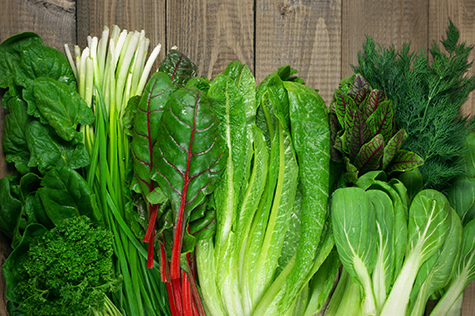MIND Diet Could Help Prevent Dementia


Dementia is one of the most dangerous and distressing conditions anyone can face in their lives.
It is a chronic or persistent disorder of the mental processes, caused by brain disease or injury, and marked by memory disorders, personality changes, and impaired reasoning.
According to a previous report, almost 47 million people are living with dementia around the world with 4.1 million of them living in India. There are more than 9.9 million new cases of dementia diagnosed each year worldwide, implying one new case every 3.2 seconds.
People are twice as afraid of losing their cognitive skills as they are about losing their physical abilities. For years it was believed that we can do little to prevent such a condition. But, according to a recent research, changing your diet and, for example, eating leafy greens such as spinach, and drinking a glass of wine at night can cut the chances of getting Alzheimer’s by up to half, according to The Mirror.
A Mediterranean-style diet, called MIND, may lower your risk of developing cognitive impairment and reduce the risk of Alzheimer’s by as much as 53 percent. A MIND Diet is the first diet specifically geared toward promoting not just better health in general, but better brain health throughout life.
Research supports its links to brain health, including reducing the risk of Alzheimer’s disease, possibly owing to its focus on antioxidant foods and those which reduce inflammation. This diet was created by Dr Morris after reviewing the existing literature surrounding brain health and food, specifically examining the Mediterranean Diet and the DASH Diet.
On the MIND diet, participants are encouraged to focus on eating primarily from the following 10 food groups:
 Green Leafy Vegetables
Green Leafy Vegetables
These include spinach and kale. Loaded with brain-healthy nutrients such as folate, vitamin E and flavonoids.
Serving size: 2 cups raw leafy greens or 1 cup cooked leafy greens.
Servings: 1 per day, at least.
 Berries
Berries
High in flavonoids, berries have been shown to improve short and long-term cognition.
Serving size: 1 cup fresh fruit or 1/2 cup dried fruit.
Servings: 2 per week, at least.
Vegetables and Fruit
This diet recommends at least one serving per day of vegetables and fruits, such as broccoli, sweet potato or apples.
Serving size: Vegetables: 2 cups raw vegetables or 1 cup cooked.
Fruits
Serving size: 1 cup fresh fruit or 1/2 cup dried fruit or 1 medium-sized fruit, such as an apple.
Servings: 1 per day, at least.
Beans
Not only are beans rich in protein and fiber, they are packed with B vitamins, which are essential for brain function and health.
Bean also low in fat and are easy to incorporate into a variety of dishes.
Serving size: 1/2 cup cooked.
Servings: at least 4 per week.
Seafood
Seafood has OMEGA 3 and it is associated with a lower risk for Alzheimer’s disease.
Olive Oil
Rich in over 230 anti-oxidant and anti-inflammatory properties, olive oil helps remove dangerous proteins from the brain.
Serving size: 1 tablespoon.
Servings: Use as your primary oil for low to medium heat, or with cold dishes.
Wine
A serving of wine is recommended.
Wine contains polyphenols, which are micronutrients which help prevent degenerative diseases.





